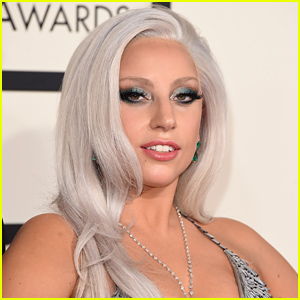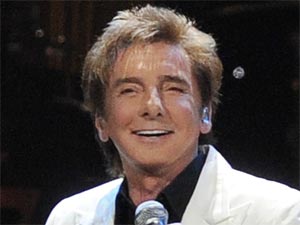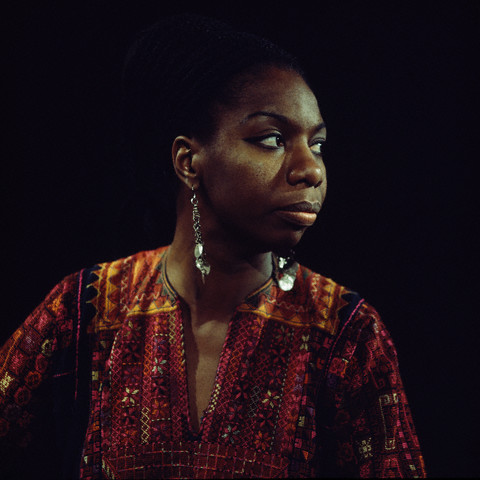| Author | Message |
Famous Music Superstars who actually know MUSIC THEORY Some famous music superstars seem to have a tendency to conceal their knowledge of any music theory so that they appear more genius and enigmatic. But it's no secret that some of the most succesful musicians actually are masters of their craft and a big part of it is a decent understanding of music theory.
Not neccessarily being able to sight read music, but they know their chord progressions, scales, and have an understanding of stuff like triads, intervals, voicings, inversions, modes, etc.
Here we go.
[img:$uid]http://mohegansun.com/content/dam/mohegansun/Images/Entertainment/Entertainers/2014/Headers/Header-Prince-628x378.jpg[/img:$uid] [img:$uid]http://media.tumblr.com/tumblr_m76fmltTon1rpx8mg.jpg[/img:$uid] [img:$uid]http://www.ablackcelebrity.com/wp-content/gallery/stevie-wonder-pictures/Stevie-Wonder-image-049.jpg[/img:$uid] [img:$uid]http://i.telegraph.co.uk/multimedia/archive/02698/sting1_2698031b.jpg[/img:$uid] [img:$uid]http://cdn2.pitchfork.com/news/57828/cbb38d0d.jpg[/img:$uid] [img:$uid]http://assets.rollingstone.com/assets/images/artists/john-mayer.jpg[/img:$uid] ETC.
Please add more to the list, but only those who have become a part of general public's consciousness (ie. famous as in celebrity famous) and have attained significant commercial success (hence people like Steve Ray Vaughn or Les Claypool don't qualify).
[Edited 4/8/15 21:37pm] | |
- E-mail - orgNote -  Report post to moderator Report post to moderator |
Nat King Cole (Rest In Peace) | |
- E-mail - orgNote -  Report post to moderator Report post to moderator |
any musician who can even write or play a blues song knows a bit about theory (I IV V, tonic and dominant, etc.). It's only the studying of theory that one learns why those things sound right. open yo mind, the entire universe you'll find
~love | |
- E-mail - orgNote -  Report post to moderator Report post to moderator |
Pat Benetar Annie Lennox Lady Gaga Zedd Aretha Franklin Stephanie Mills Barry Manilow John Mayer Melissa Etheridge Esperanza Spalding Miles Davis Nina Simone | |
- E-mail - orgNote -  Report post to moderator Report post to moderator |
I thought Prince didn't know musical theory, at least according to one thread some time ago.
| |
- E-mail - orgNote -  Report post to moderator Report post to moderator |
Prince has some grasp of music theory, but if I recall correctly, he cannot read music and having an amazing ear. So it depends on what the OP means by "actually knows music | |
- E-mail - orgNote -  Report post to moderator Report post to moderator |
Davis dropped out of Juilliard after asking permission from his father. In his autobiography, Davis criticized the Juilliard classes for centering too much on the classical European and "white" repertoire. However, he also acknowledged that, in addition to greatly improving his trumpet playing technique, Juilliard helped give him a grounding in music theory that would prove valuable in later years. | |
- E-mail - orgNote -  Report post to moderator Report post to moderator |
| |
- E-mail - orgNote -  Report post to moderator Report post to moderator |
SLY STONE!!!!!!!!!!!!!!!!! | |
- E-mail - orgNote -  Report post to moderator Report post to moderator |
Harry Connick, Jr #SOCIETYDEFINESU | |
- E-mail - orgNote -  Report post to moderator Report post to moderator |
duccichucka said: Prince has some grasp of music theory, but if I recall correctly, he cannot read music and having an amazing ear. So it depends on what the OP means by "actually knows music I agree, we need to be more specific about what "knowing music theory" means. Paul MacCarthey said in an interview last year that The Beatles studying was listening. You can't study to be Bob Dylan, those were his words. I don't know about Frank Zappa, I think he was mostly self-taught, but he surely knew a lot about music. [Edited 4/12/15 1:42am] | |
- E-mail - orgNote -  Report post to moderator Report post to moderator |
Frank learned a great deal of music theory in his formative years. He composed and wrote down his own sheet music. I didn't include him in the list because he never achieved mainstream comercial success, which is not neccesarily a bad thing, but that's just the way it is.
As to what "knowing music theory" means, as I already explained, not neccessarily being able to sight read music, but know chord progressions, scales, and have an understanding of stuff like triads, intervals, voicings, inversions, modes, etc. [Edited 4/12/15 4:03am] | |
- E-mail - orgNote -  Report post to moderator Report post to moderator |
What's the big deal with written music--being able to put it on paper or take it off of paper doesn't seem to me to have anything to do with anything. It's a way of communicating musical ideas that doesn't require actual performance to get those ideas to someone else... but is reading or writing necessary for creating or understanding music at a high level? I don't get the obsession some people have with it. It's not like literature, which survives as art on the page while most speech is just practical. Music is what's in the air, not the pinned and etherized thing you trap on the staff. . And when you say people learn music theory, isn't that just another communication method--I can describe the actual phenomenon using these words, and describe the relationship between these elements in this way--but isn't the direct experiencing of the music potentially enough for a musician to work--he may have, admittedly difficulty expressing those ideas in words to another person, which could limit his ability to work in some contexts. And a lack of sufficient familiarity with the actual music of a certain genre might prevent you from being able to move in those performance circles (which is why Prince isn't able to hang with jazz players--if he can't, since he's never really tried to meet them in their own realm--not because he can or can't read or did or didn't have theoretica training. Prince couldn't play with Nashville pros either--and it isn't because they're "theory" specialists). But that's not theory--that's just a different kind of practical experience. . What exactly does theory teach people that listening can't--other than a means of talking about music? | |
- E-mail - orgNote -  Report post to moderator Report post to moderator |
From what I've read Zappa became almost obsessed with the graphic form of music--he loved the way it looked on the page as an aesthetic object in and of itself. It's been awhile since I saw this, and I don't even remember where I saw it--but he'd sometimes compose with relatively little interest in what it would sound like or whether it could actually even be performed (two slightly different things--and he'd eventually use the synclavier to bring the impossible music to life). I do remember descriptions of his joy just in seeing the shapes of scores. | |
- E-mail - orgNote -  Report post to moderator Report post to moderator |
Zappa even had something called The Black Page: so many notes written down that the paper was almost black. | |
- E-mail - orgNote -  Report post to moderator Report post to moderator |
| |
- E-mail - orgNote -  Report post to moderator Report post to moderator |
My own training (though I've since left it behind in my normal life) was in poetry and literary theory. I can't say that I believe that much beyond basic rules of prosody and a whole lot of experiencing of poetry and a whole lot of practice composing it is particularly useful for poets (about the level that nearly all the people we're talking about have in music theory). And the ability to actually read and write only helps because it allows a poet to be exposed to more work than they might experience orally. But since they're also building from the normal patterns of speech, I have no problem conceiving of poets who go as far as it is possible to go simply from their own experience and study of the work itself, without hearing what people have "theorized" in attempts to explain what the actual artists are doing (and of course sometimes theorists are also artists). . You don't get from Speaker A to Speaker B because of literacy--you get to it because of knowledge about your subject, which here isn't language. Speaker B doesn't have a greater knowledge of the way the English language is built philologically--she knows more about apples and their respective cultivars, and has spent more time talking about them (not about English or language itself). . And that knowledge is attainable whether or not she reads or writes a single word of English--she could listen to what others say about apples and talk back to them. She does speak more skillfully as well, but that's from practice, not from some in-depth study of language. She could play and listen to the music, in other words. She doesn't have to read the score. And she certainly doesn't have to know anything about the Great Vowel shift or the complicated details of infixes, tenses, or declensions. Just the practical surface effects. She could even become a great orator from listening to and analyzing what works in others' speech--but she doesn't need a ton of old Greek-derived vocabulary describing oratorical devices. She needs to be able to put the eight parts of speech together, but she doesn't need to be able to describe every possible template for how they can be joined, or to know how they work in other dialects, or in other languages, or over time. There are people who do that, and it's probably a worthwhile pursuit. But for it's own sake, because it's not going to help you tell me anything important about an apple, or a dress, or love, or death... or music. It would be an incredible waste of time if you're wanting to communicate about anything except language itself. To become a good speaker or writer, you really just needs to experience other people's use of the language, practice using it yourself, and see what works. . Very few great speakers go far in the theory of language--yes, literacy allows them to experience more speakers (and allows poets to experience more poetry, and allows fiction writers to experience more narrative writing), and often the written form is what's meant as the work itself--but that isn't what the ability to read a musical score is about, in general. It's about communicating the outlines for a performance, and only in the air do you have music. . But I get what you're saying, and I thank you for taking the time to say it. I don't think I buy it--but I also don't have much appreciation for classical and jazz music, so it's entirely possible that since I don't seem to value what they learn from theory, I can't really judge. If you could show me how a pop musician has improved (while remaining "pop") because of theoretical knowledge, maybe I could understand.
| |
- E-mail - orgNote -  Report post to moderator Report post to moderator |
Well said. Totally agree. | |
- E-mail - orgNote -  Report post to moderator Report post to moderator |
[img:$uid]http://www1.pictures.gi.zimbio.com/Houston+Rockets+v+Los+Angeles+Lakers+Game+PvRDxi-DBMhl.jpg[/img:$uid] | |
- E-mail - orgNote -  Report post to moderator Report post to moderator |
 New topic
New topic Printable
Printable









